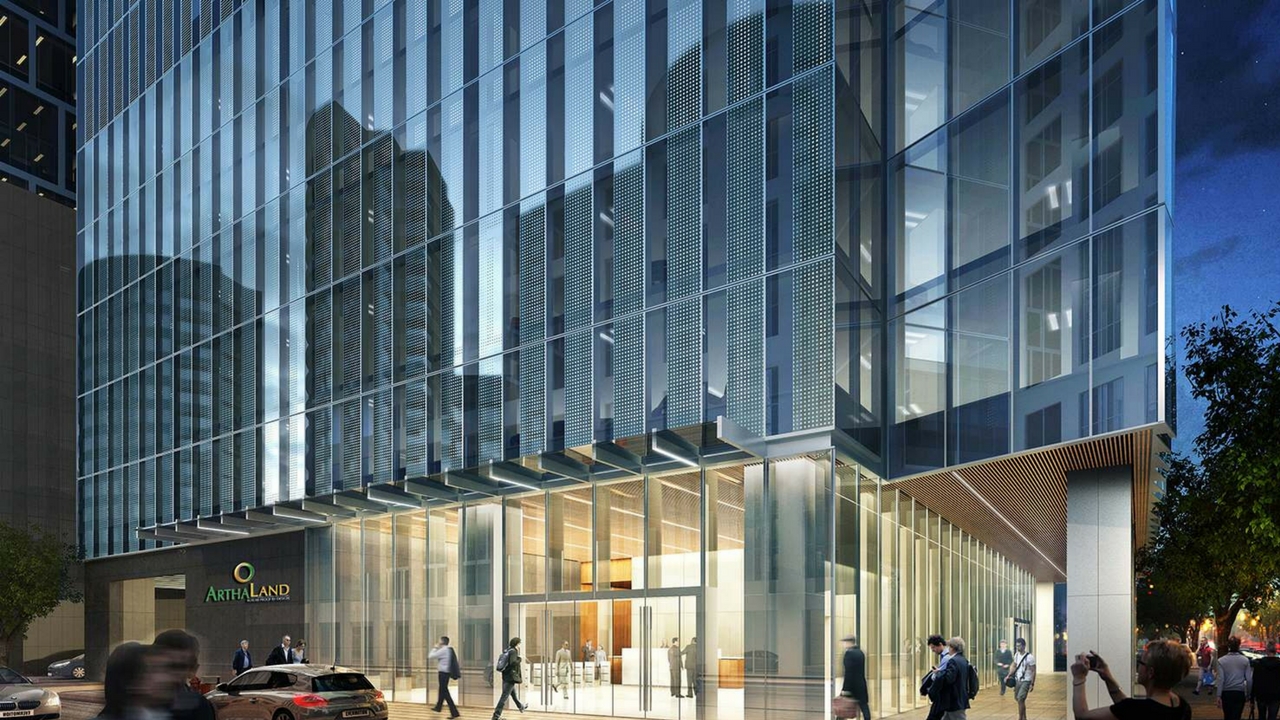- In 2017 Compass Offices expanded its workspace portfolio with new locations in the Philippines, Singapore, and Melbourne.
- According to Compass Offices, entrepreneurship in Asia is powered by strong government support, a deep talent pool, and strong investor funding.
- The Philippines has become on of Asia’s most dynamic economies with an expected growth rate of 6.9% for 2018.
The flexible workspace industry is growing rapidly in Asia, and for good reason. With an immense talent pool, solid economy, and government support, companies of all shapes and sizes are embracing the benefits that come with operating their business from Asian cities.
Founded in 2009 by Andrew Chung, Compass Offices started by providing traditional flexible workspace solutions in Asia. As the industry has evolved and matured, Compass Offices has had to adjust and grow according to market demand. In 2017, the workspace brand invested in a new concept of high-end, yet affordable, workspace environments; seeking to combine the best of traditional serviced offices, coworking spaces, and cafes.
Allwork.Space spoke with Compass Offices about the state of coworking and flexible workspaces across the Asia-Pacific region, the countries where flexible workspaces are taking off, and the countries we should set our sights on.
Allwork.Space: Tell us about Compass Offices in 2017. Did you expand into any new markets or regions?
Compass Offices: We expanded our footprint in the Philippines, Singapore, and Melbourne. We chose these markets because it’s where we saw there was a strong demand and growth opportunity for flexible workspaces.
Allwork.Space: What specifically about each market indicated its growth opportunity?
Philippines
The Philippines is a promising global market with an overall positive economic outlook. The Philippines and Metro Manila areas in particular witnessed the growth of a unique sub-industry in real estate and leased spaces through coworking and serviced offices.
Though big corporations are driving this growth, SMEs have also been putting in significant numbers into the nation’s economic upswing. Data from the Department of Trade and Industry shows that SMEs account for 99.6% of total registered enterprises. Out of the 820,255 businesses which operate in the country, 816,759 are SMEs while only 3,496 are large enterprises. Specifically, The Business Process Outsourcing (BPO) market in the Philippines is also of the most dynamic and fastest growing sectors, with forecasts estimating 1.4 million people employed in the sector by end of 2017.
Singapore
Singapore is one of the world’s top business and startup hubs, surpassing its peers in terms of investor funding. Because its office rental rates rank among the highest in the world, Singapore’s market is full of startups and entrepreneurs looking to save on rent or flexible lease contracts. This fact alone can make flexible workspaces even more appealing, increasing their demand and powering their growth. In fact, the industry is poised to grow at an average of 10-15% per annum.
Compass Offices took advantage of this to expand its footprint in Singapore this 2017. We added 2 floors of Singapore Land Tower to our workspace portfolio.
Melbourne
In Melbourne, the rapid increase in demand for coworking spaces is mostly powered by the growth of the freelance economy. In Melbourne the share of freelancers and entrepreneurs currently sits at 12%. Additionally, the recent economic downturn has led to more individuals setting up their own businesses, which means there is a large pool of professionals seeking flexible, affordable office space.

Allwork.Space: What are some coworking and serviced office industry trends you’ve observed in the Asia-Pacific region?
The past year has seen the proliferation of serviced offices and coworking space, with several large overseas and domestic operators expanding to major cities including Hong Kong, Singapore, Philippines, Vietnam, Shanghai, Tokyo, Sydney, and Melbourne.
Asia’s diverse cultures and desire for entrepreneurship are embracing the coworking trend in innovative ways, tailored to their locations, and companies and developers are reaping the benefits of this new rapidly evolving business model.
Allwork.Space: China specifically has experienced significant growth in the coworking arena. Compass Offices has a location in Shanghai; what can you tell us about coworking in China — the opportunities, the challenges?
China’s technology sector has grown exponentially in recent years. The serviced office and coworking sector has grown directly alongside this to satisfy the demand for flexible space, which has increased demand and driven the growth and entrance of local and global players into the region.
Additionally, given the amount of pipeline stock and vacancy rates in Shanghai and Beijing, coworking spaces are expected to gain a large footprint in China. Coworking operators tend to focus on major cities which will likely enjoy the greatest rate of growth. However, it is also likely that expansion within second tier cities will occur across the region. The rate of expansion for these operators is high in Asia given that mature markets have already witnessed this growth. Given that China’s economy has regained momentum, the total investment volume in real estate is set to rise further in 2018.
Allwork.Space: What do you believe is driving coworking and workspace-as-a-service growth in China and the rest of Asia?
Some of the top cities to start a business are located in Asia, and it’s no wonder. The strong government support in these countries is not their only pulling factor; the deep talent pool and strong investor funding is making entrepreneurship a desirable career path. Citing flexibility of serviced offices and coworking spaces as a compelling reason apart from more obvious ones like cost-effectiveness and the convenience of a fully furnished working area, large companies that are entering into an unfamiliar market may not be ready to take up a long-term lease in traditional offices when their business has yet to stabilise and their workforce is not sizable enough. As such, there is freedom to downsize or grow.
Allwork.Space: In your opinion, which Asian city or market is the fastest-growing, or is poised for the most growth in 2018?
The Philippines has transformed into one of Asia’s most dynamic economies on the back of fast-paced GDP growth. In 2016, robust domestic demand helped the Philippine economy to expand by 6.8%, outpacing China’s growth rate of 6.7%. The World Bank’s June 2017 Global Economic Prospects report predicts the country will remain one of the region’s top performers with an expected growth rate of 6.9% through 2018. Banking giant HSBC affirms the Philippines’ strong performance, pegging this year’s GDP growth at 6.5%.
Vietnam is also poised to remain among the world’s fastest-growing economies, as new factories open and foreign direct investment rises. Plus, China’s seemingly bottomless investment funds will continue to flood Hong Kong with the region’s plans to develop 3 more Central Business Districts.
Allwork.Space: Are there any expansion or growth plans for Compass Offices in the pipeline for 2018?
Compass is currently looking at more offices in Singapore and additional floors in Melbourne, Hong Kong and Vietnam. We’re also planning to update a number of our existing Hong Kong locations with our new concept in offices and mixed-use breakout areas.

















